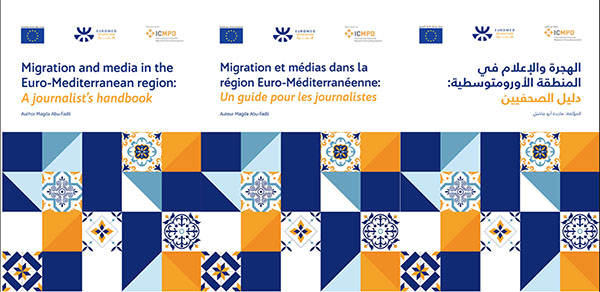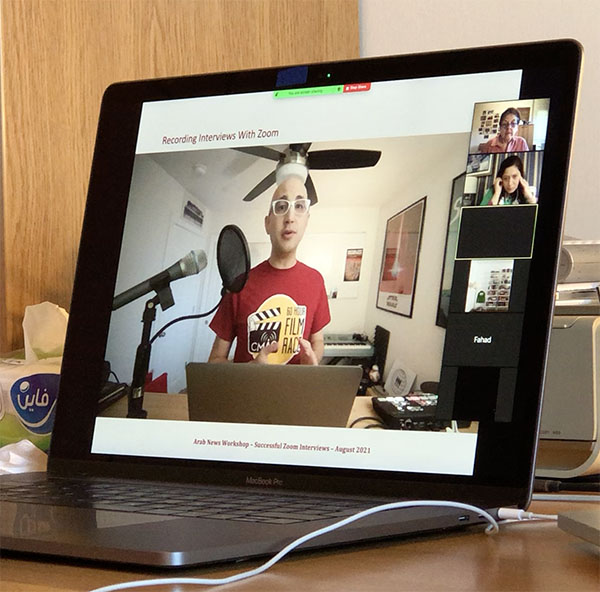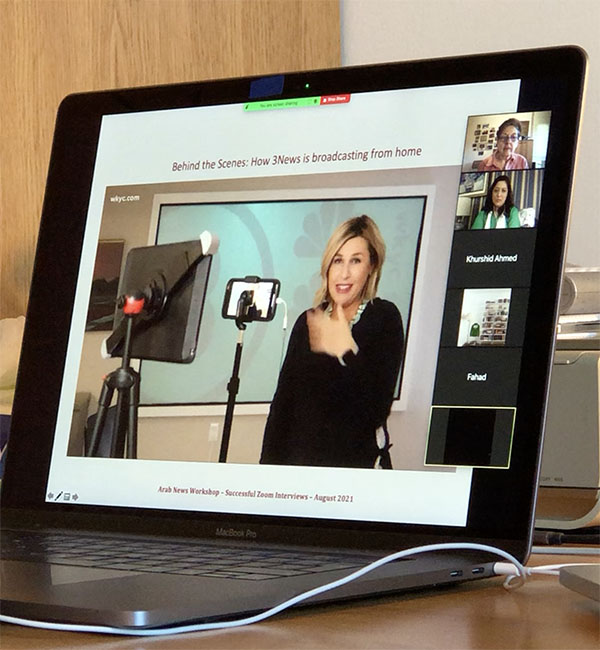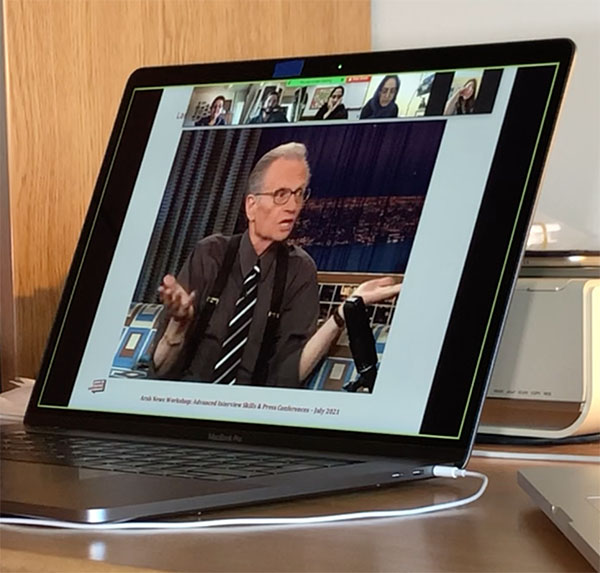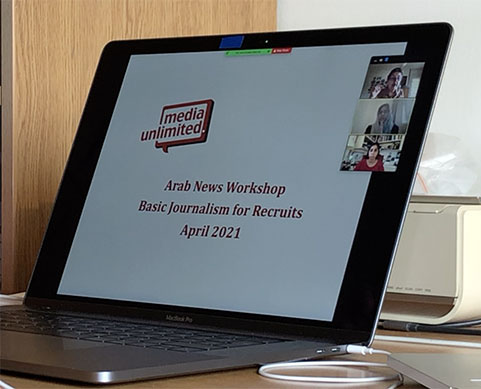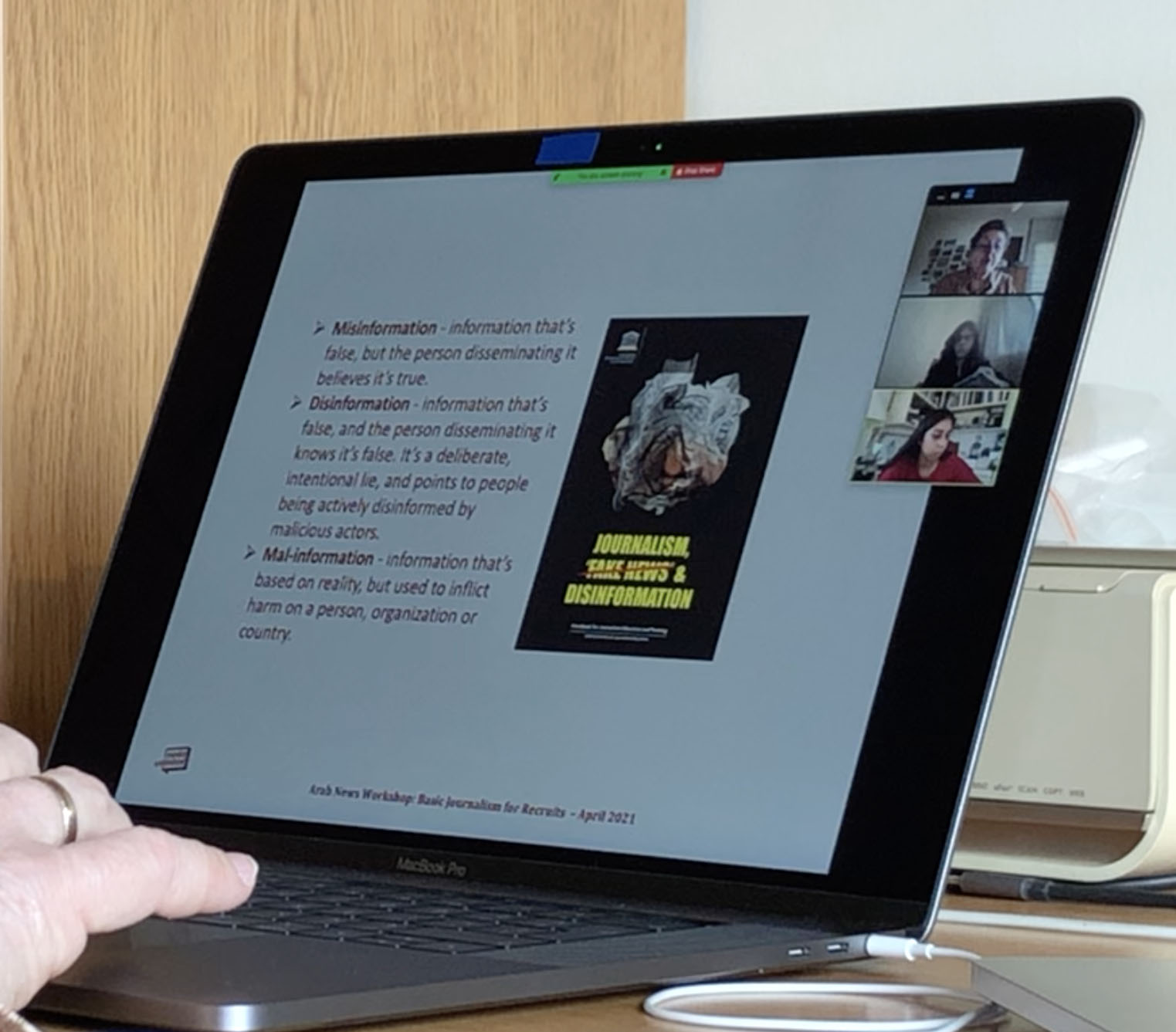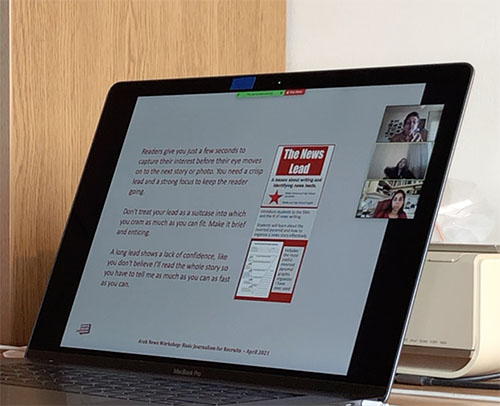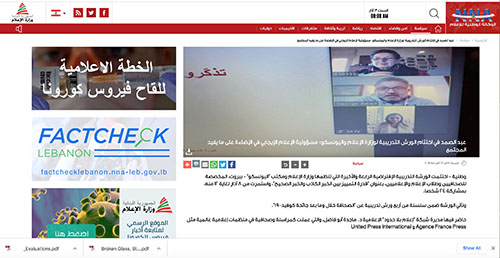Media Unlimited director Magda Abu-Fadil paved the way for a new crop of Arab News recruits to become journalists in a fast-moving media landscape through rigorous testing and helpful guidelines on producing media content.
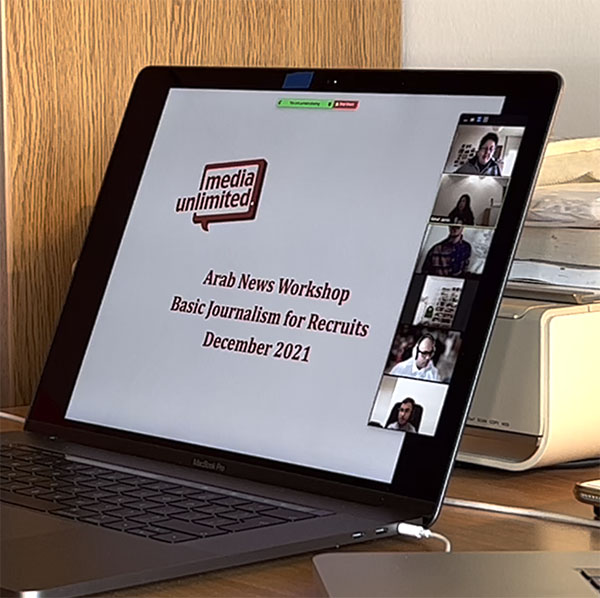
Basic journalism workshop
The three-day virtual workshop in December 2021 involved exercises to assess the would-be reporters’ general knowledge, power of observation, capabilities and skills.
They covered basic grammar, writing, light editing, photo captions, geography, history, economics, politics and culture.

Geography test in a changing news world
The training also covered the definition of news, news story structures, grammar and punctuation rules, the lead, the nut graf, context, background information, how to use quotations, writing headlines and captions, types of news sources, interview skills and media ethics.
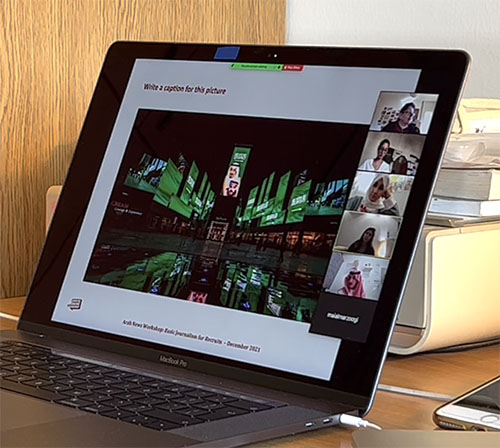
The art of caption writing
The final session included writing and editing exercises and the importance of fact checking.
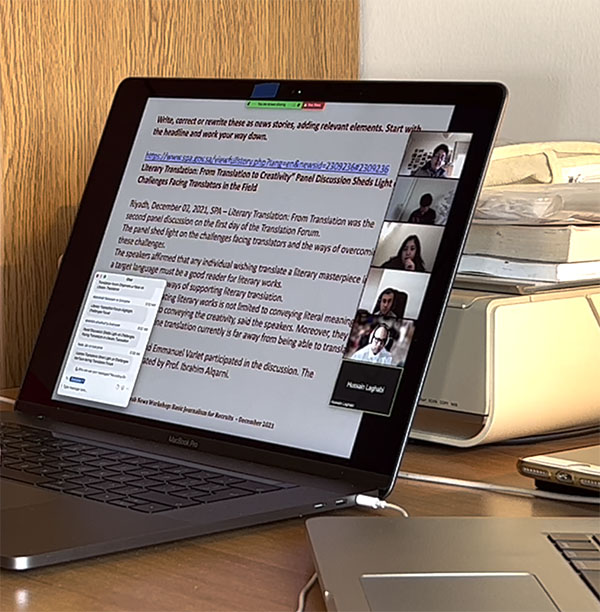
Rewriting, correcting stories
The trainees were told journalism is based on acquiring a body of knowledge on which to draw and build, that it is very hard work and requires patience, perseverance, creativity and ethics.
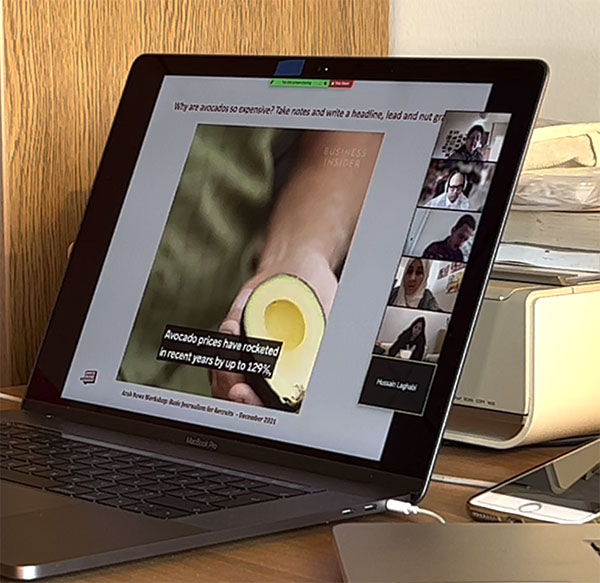
Writing a headline, lead and nut graf for a video piece
Applying that knowledge journalistically in a cross-platform digital multimedia environment is still based on the principles of good old-fashioned journalism: research, knowing how to filter information, accuracy, fairness, a balanced approach to the news, and endless hours of writing to get it right in impeccable English, Abu-Fadil explained.

